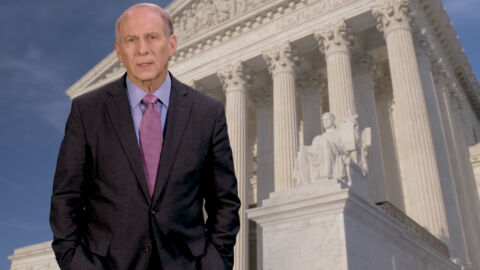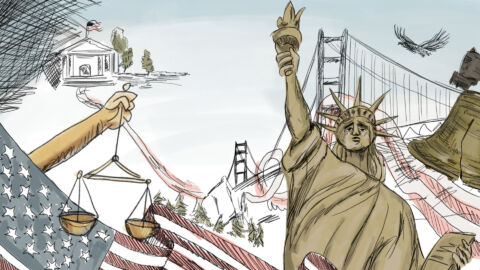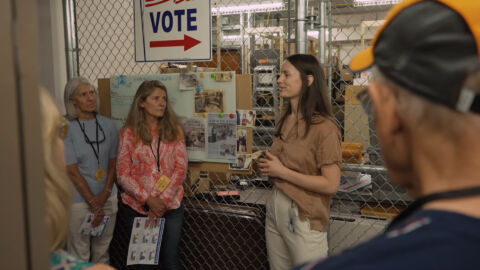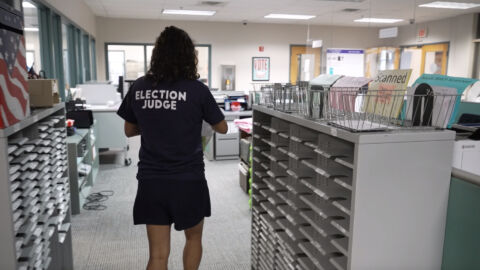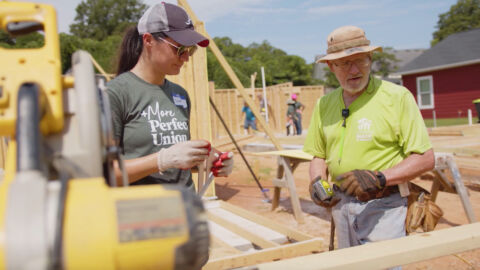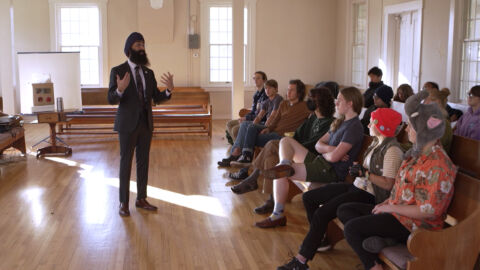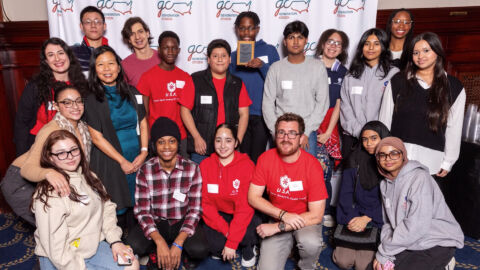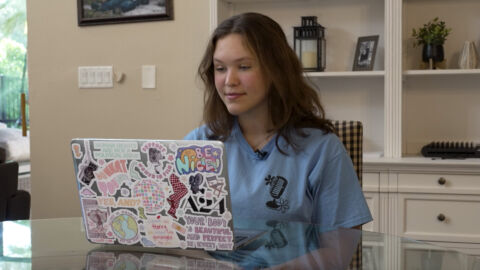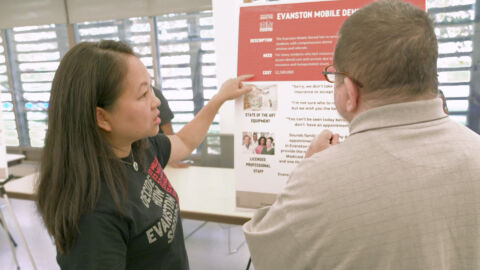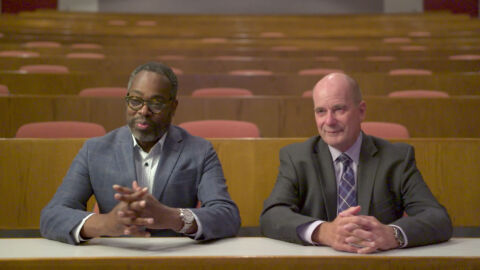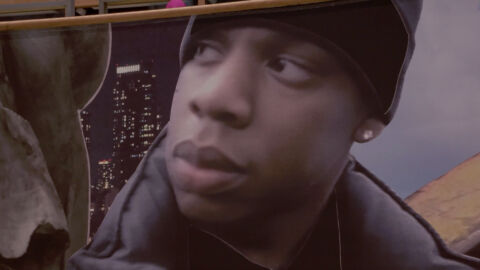The U.S. is facing a deep crisis of polarization that is threatening our democracy. From the January 6th attack on the U.S. Capitol to the recent assassination attempt against Donald Trump, we are seeing that the increasingly bitter, ugly language thrown around in American politics has real life consequences. Words matter.
“Seldom has there been so much rancor in the way we talk to each other and the way we seem to have contempt for people in the other political party,” says David Blankenhorn, President of Braver Angels. “Our great experiment in ordered liberty as a nation will not survive if each half of the country really hates the other half and doesn’t even want to talk to each other.”
Braver Angels is a national citizens group that brings together conservatives and liberals to try to understand one another better and find common ground on controversial issues. The organization was founded in 2016, just after the U.S. presidential election. The name is inspired by Abraham Lincoln’s famous first inaugural address, in which he shares his hopeful vision for national unity in his closing words:
“We are not enemies, but friends. We must not be enemies. Though passion may have strained it must not break our bonds of affection. The mystic chords of memory, stretching from every battlefield and patriot grave to every living heart and hearthstone all over this broad land, will yet swell the chorus of the Union, when again touched, as surely they will be, by the better angels of our nature.”
Today, Braver Angels’ grassroots ‘civic renewal’ movement boasts over 12,000 members. The organization offers a variety of ways to learn about and participate in bridge-building across political divides: skill-building workshops, 1:1 conversations, debates, online courses, a national convention, a new podcast, and online discussions. After participating in one of their programs, 68% of participants had a positive view of the other side, according to Braver Angels.
“Our fundamental model is really quite simple. It’s based on people talking to one another face to face,” says Blankenhorn.
Braver Angels’ primary programming is focused on one-on-one conversations and workshops that bring together conservative “Reds” and liberal “Blues” to facilitate respectful conversations. The workshops are not about convincing someone to believe what you believe. Rather, they are designed to facilitate productive conversation and strengthen listening skills in order to build, what Blankenhorn calls “civic friendship,” between people with differing political beliefs. They’re about seeking common ground, and, if possible, finding ways to work together.
In his book “The Bill of Obligations: Ten Habits of Good Citizens,” author and diplomat Richard Haass writes that Henry Clay, a mentor to Lincoln, known as the “great compromiser” said it best: “All legislation, all government, all society is founded on the principle of mutual concession.”
Haass explains that compromise is essential to democracy: “If, however, compromise was once as American as apple pie, it is no longer. This is a serious problem. I’ve put forth compromise as an obligation because it is essential to getting things done in any situation in which power is distributed among multiple sets of hands, which is the case in a democracy.”
“Lincoln believed that if I want to convince you of my position, the first thing I have to convince you of is that I wish you well,” Blankenhorn adds. “I care about you as a human being. That’s the precondition for trying to persuade you of anything.”
In June in Mt. Holly, New Jersey, members of Temple Har Zion gathered with members of Mt. Holly Friends Meeting for the Braver Angels workshop: Communication Skills for Bridging the Political Divide. Participants had a chance to role play, hone active listening skills, and discover ways to have respectful, non-polarizing conversations with those who have different political beliefs than themselves. Participants shared that they learned to be more open-minded, to listen more respectfully, and to find shared values through listening to personal stories.
Blankenhorn says, “We find that if we bring people together face to face, talk to people that they didn’t think they would have anything in common with, they want more. It makes them feel better about the possibilities of the country.”
After the 2020 elections, studies found that folks on both sides of the political divide lack trust in American elections – from trust in the election process, to peaceful transfer of power, to voter fraud and voter suppression. The Braver Angels Trustworthy Election Campaign brought together an equal number of ‘Red’ and ‘Blue’ participants at 26 workshops across the country to share open dialogue and to uncover shared values, concerns and solutions around our electoral process.
The final report reflects the collaborative consensus of a team of evenly balanced Red/Blue leaders who analyzed and distilled the points of agreement into a report using language that they all felt comfortable with. They see the report as “a blueprint” of recommendations from citizens that can restore trust in our elections.
“We’re now taking this [report] to state officials around the country to say there’s a way here,” Blankenhorn says.

